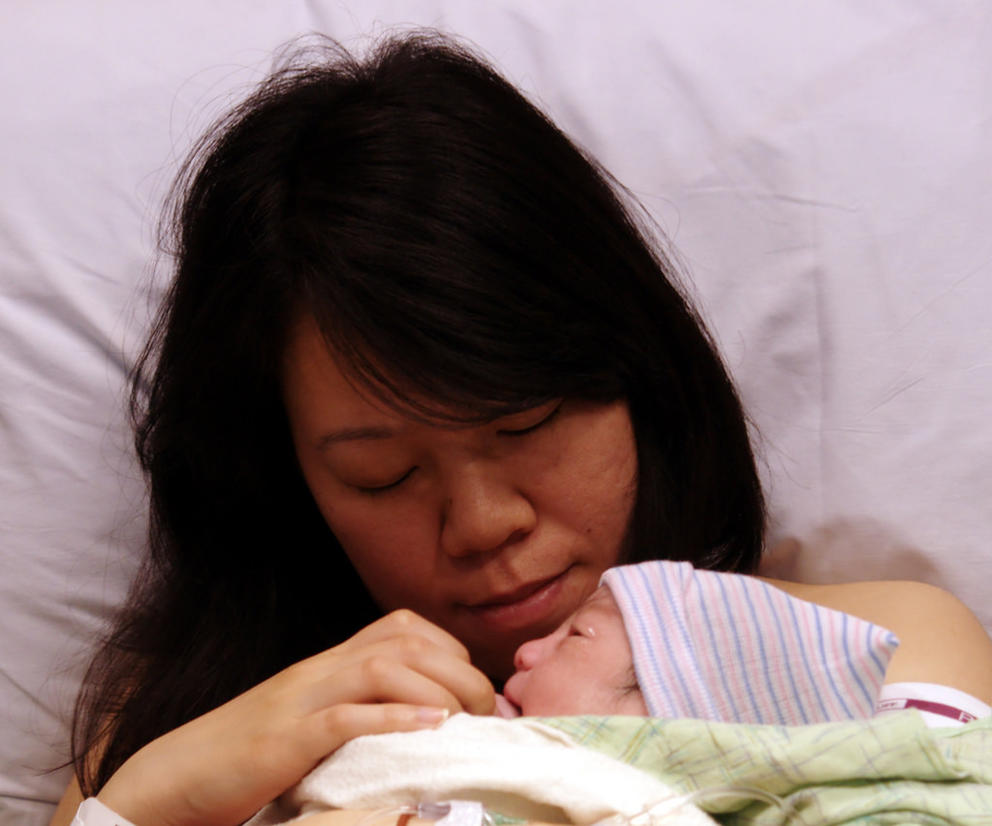When one of her 7-year-old twin sons had to spend two weeks in the hospital, Karina Romero stuck with him the whole time.
Since she had only one day of vacation at the time, helping her child through treatment of an illness involving inflamed blood vessels translated into lost wages from her job at Macy’s and unpaid bills. “As a low-wage worker, I cannot afford to take an unpaid day off,” she told a Washington House committee earlier this year.
The state Legislature seems to be listening. As the end of the session nears, lawmakers from both parties are trying to agree on a paid family and medical leave plan to help people like Romero.
Romero testified in favor of a House bill, introduced by Everett Democratic Rep. June Robinson, to make pay family leave mandatory in the state. Republican Sen. Joe Fain of Auburn has a family-leave bill that won near-unanimous support in a committee last month.
The new measures were spurred, at least in part, by voter approval of last year's Initiative 1433, which mandated a minimum level of sick leave for employees while increasing the state minimum wage. The law requires that employers allow one hour of paid sick leave for every 40 hours worked. But that didn’t provide paid coverage for longer term absences from work, such as for new parenthood or helping with a hospitalized or seriously ill family member.
The bill in the Democratic-controlled House would require 26 weeks of paid leave for new parents, those with a seriously ill family member or someone affected by a military member’s active-duty assignment. It would provide for 12 weeks of leave for a worker's own health condition. Payments, which would be funded by employer and worker contributions, would be up to 90 percent of normal wages for lower income workers; other employees would receive half their normal wages. The current version of the Senate bill, watered down from Fain's original proposal, is largely a statement that it is in the state’s interest to provide paid family leave, but it could also pave the way for finally implementing a limited state family leave program if the Legislature decides to fund it.
Democrats and Republicans are trying to come up with a compromise before the regular legislative session ends on April 23.
Democratic state Sen. Karen Keiser said progress is being made.
Fain said that family leave legislation is complicated, but the negotiators have done a good job of identifying the key issues. “Some of the smaller details have significant impacts on certain businesses,” he said.
When Robinson’s bill was heard in committee, the Washington Farm Bureau and the Washington Retail Association opposed the concept of mandatory paid family leave, saying it would be a big burden on small businesses. “A lot of businesses out there [are] already looking at complications with the minimum wage increase,” said Carolyn Logue, representing the retailers association.
But business leaders’ opinions vary. At the House hearing, Holly Chisa of the Northwest Grocery Association supported paid family leave, while noting complications in meshing a potential state leave law with current union contracts. The powerful Association of Washington Business was neutral on the concept of paid family leave, although it voiced concern about the effects on businesses with one or two employees.
Lawmakers declined to discuss details of their talks about a compromise but Robinson, the sponsor of the House bill, offered a fairly upbeat assessment: “I wouldn’t say we’re very far apart.”
Fain said those involved with the discussions are meeting frequently.
If the two sides don’t reach a compromise by the end of the regular session on April 23, it is unknown whether the talks would continue during the Legislature’s expected first 30-day special session to hash out major budget impasses. Robinson said, “It would take a lot of political will to keep things going.”


